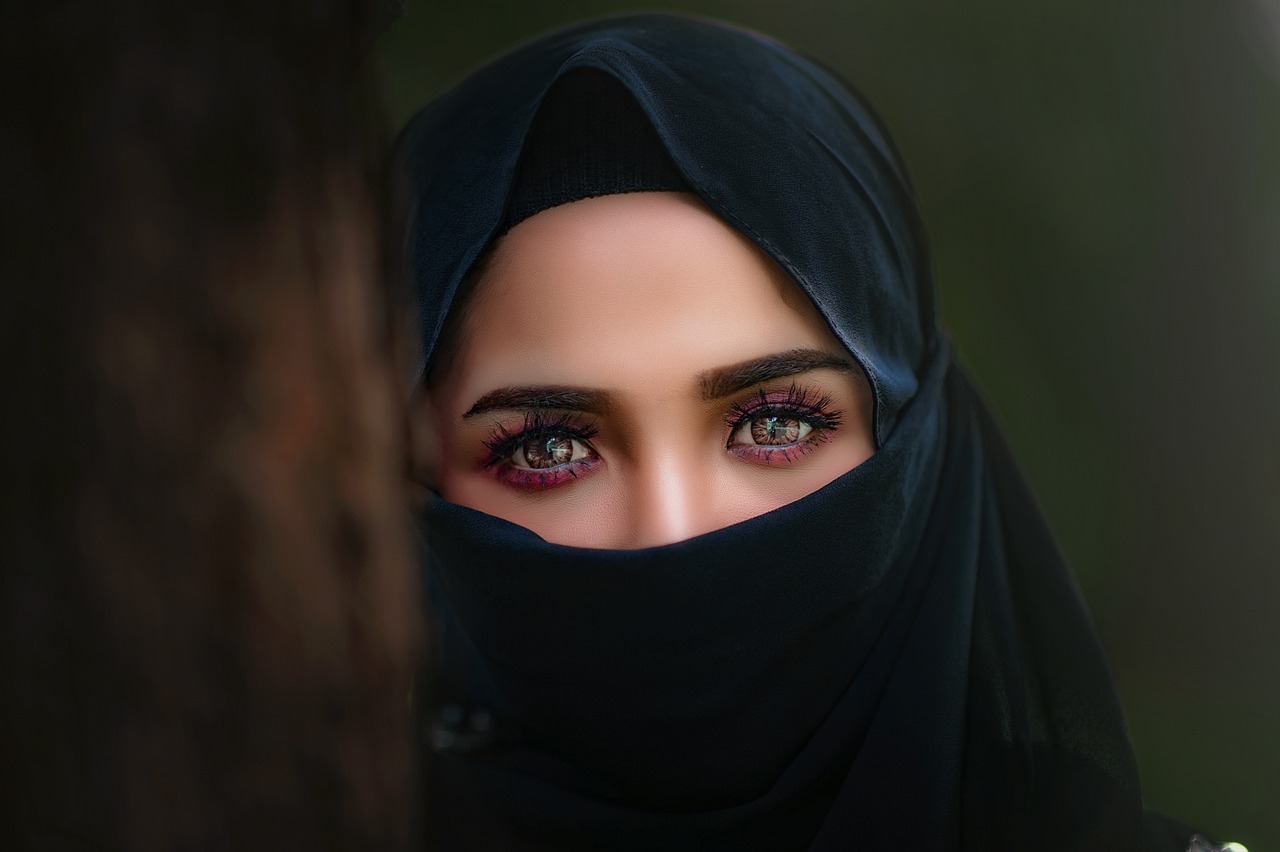A hijab is part of a woman’s modesty, protecting her from objectifying gazes and unnecessary comments. Islam places great emphasis on protecting its women from everything harsh the outside world has to offer and, therefore, makes it an obligation for women to cover themselves to shield their beauty, morality, and modesty.
Women may get into situations where wearing a hijab is not within reach, or it may be difficult to take care of it. What should one do in these circumstances? This blog will discuss in detail when a woman can take off her hijab and what the ruling is regarding it.
Taking off the Hijab
In Front of Mahrmas
One of the biggest objectives of the hijab is to shield away the body parts of a woman that beautifies her so that she may remain safe from lustful gazes. One of the exceptions to this are mahrams, with whom nikkah is not permissible.
Mahrams of a Woman
In the Quranic verse [Al-Noor 24:31], Allah SWT has described the people in front of whom women can take off their hijabs. They are:
- Fathers
- Brothers (it doesn’t matter if they are your stepbrothers. If you share a parent, they are mahrams)
- Sons
- Husbands
- Paternal Grandfather
- Maternal Grandfather
- Father-in-laws
- Maternal uncles (as in the brothers of your mother, not the husband of your aunt)
- Paternal uncles (same as above)
- Young boys who have not reached puberty.
- Stepsons
- Maternal niece and nephews
- Paternal niece and nephews
- Maternal and paternal forefathers, no matter how long the line of ancestors is, are all mahrams.
- Grandsons
- Stepson’s sons.
- Great grandsons
- Maternal grandnieces.
- Boys who you have suckled as a child.
Note: In Islam, every woman is the sister of another woman, hence a mahram.
In Case of An Emergency
There are many Islamic rules that if you don’t follow in the case of an emergency, you won’t get punished for it. One such rule is the rule of the hijab. If one finds herself in an emergency, such as a fire, and can’t find their hijab, they have to save someone, and their hijab isn’t within reach, then they are perfectly allowed to react in the situation without the hijab.
When In An All-Female Gathering
Since women are mahram to each other, wearing the hijab in an all-female gathering, such as an all-girls party or a wedding that has a partition, is not an obligation. But if someone wants to wear it because of their preference, there is no problem.
During Labour
This one kind of says it without saying it. When you are in labor, there is much more than just your hair uncovered, so it’s okay to remove your hijab during the process. There are two options since some hospitals have male medical professionals during the labor process:
- Request to have an all-female staff with you, and if there is a male, then they should be veiled from you (i.e., either they can be behind a curtain or helping in a way that they don’t see you)
- And if there isn’t an all-female staff, remain calm because it is permitted to have male professionals in the case of a medical emergency.
This ruling is based on the principle of saving a life because it is greater than the principle of covering. But it should be kept in mind that if there is a slight possibility of avoiding males, they should be avoided.
When Alone
When one is alone, it doesn’t matter if they are in their room or house; they can remove their hijab.
When Praying
Although it is a rule to have your body covered from the head to the feet during prayer, one can remove their hijab and replace it with a chador (a cloth that covers the neck, shoulders, hair, and chest).
During Sports or PE
If it is an all-female environment, then it is permissible to remove the hijab, as it may cause difficulty when playing. But if it is a co-environment, hijab should be observed.
Best Option
If one comes across a situation in which one is not sure whether to take off their hijab or not, the best decision is to keep wearing it.
Benefits of Hijab
- UV rays damage hair follicles and cause dryness, itchiness, and reduced hair growth, but an extra layer of cloth protects your hair.
- Women don’t have to think of a new hairstyle daily since their hair will be covered. It also prevents hair from getting into one’s face.
- One gains the pleasure of Allah SWT as they wear the hijab, keep earning good deeds, and level up as a Muslim.
A Reminder
Being a Muslim, one should always keep in mind that while wearing the hijab or observing the proper form of a veil, it doesn’t give anyone the right to judge other people who don’t.
If you see a sister without a hijab, you may approach her with kindness and gently tell her about the benefits of it rather than shaming her. Always remember, Allah SWT loves kindness.
Wearing the hijab is part of a woman’s life, as it protects her dignity and safeguards her against objectification. There are certain situations where removing the hijab is permissible and accepted. If one finds herself in these situations, they should be worry-free and try to get to safety.


I like hijabs
Me to I love hijab. They are so nice and they come in many colors and patterns.
Great
Great best ever
Jazakallah. This article offers a comprehensive understanding of the significance and rules surrounding the Hijab in Islam, emphasizing its role in protecting women’s modesty and dignity. It provides a nuanced perspective on when a woman can remove her hijab, underscoring the importance of empathy, understanding, and kindness in our interactions with others.